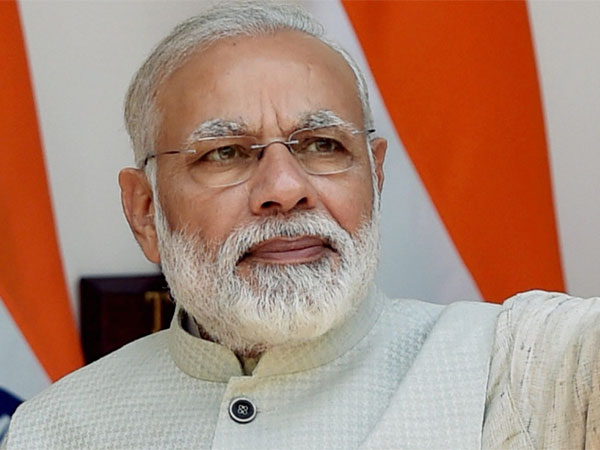
Why did Narendra Modi ignore Indonesia, a key maritime nation, for so long?
Foreign policy is one sector on which Prime Minister Narendra Modi has always put a special stress in the last four years since coming to power.

He has paid visits to several countries across the globe and his intensity of foreign trip has been so high that people have mocked and criticised when he returned to India saying "PM Modi visits India".
For such a globe-trotting leadership, it is quite unusual that it decided to pay a visit to Indonesia, Asia's seventh-largest country and the largest in Southeast Asia, in its last year in power. For a proactive leader like Modi who has shown his preference for the 'long term' benefits in bilateral relations, did this visit to the world's largest Muslim state come a bit too late? He has already visited the other two countries in his latest foreign trip itinerary, namely, Malaysia and Singapore, but in Indonesia, he will set his foot for the first time.
India-Indonesia joint drill of 2016 remained obscure
Even though Modi has emphasised on bettering relations with India's immediate and not-so-distant neighbours (Indonesia's Aceh province in not too far from the Andamans), Indonesia has surprisingly not featured in his radar so far. India and Indonesia conducted a 17-day joint patrolling exercise in the Andaman Sea in October 2016 which was the 28th such coordinated patrol and second bilateral maritime exercise between the two nations but it went largely under-reported, thanks to the US presidential election and the move for demonetisation in India.
In the later days too, India's 'Act East' policy was more identified with New Delhi's engagement with countries like Japan, Australia and Vietnam but not Indonesia.
But India has a large similarity with Indonesia in terms of size, population, religion, political functioning and share a long socio-cultural history with the archipelago, which should have seen them facilitating their ties in current times more intensely.
India and Indonesia have a complex relationship
During the early period after independence, India and Indonesia worked closely towards laying the foundation of the non-aligned political platform and promote an Asian-centric brand of diplomacy. The Asian Relations Conference in the late 1940s and the Bandung Conference in the mid-1950s showed the deep solidarity that existed between New Delhi and Jakarta.
From the 1960s, as the Nehruvian era drew to an end, India's clout in Southeast Asia diminished. The prevalent Cold War, too, created political tension in the region while the India-China war of 1962 hit India's diplomatic stature.
Indonesia, around this time, turned more hostile towards India by forging a friendship treaty with China in 1961 and supporting Pakistan during the Indo-Pak war of 1965. India's good relations with the then Malaysia also did not help its relations with Indonesia and there were even prospects of military confrontation between India and Indonesia over the Andamans and Nicober Islands.
In the 1980s, Indonesia was more concerned about India's naval ambitions in the Andamans but it was only after several initiatives of confidence-building were taken that this concern was alleviated and the two Asian powers began to see a betterment of their ties.
Towards the end of the 20th century and from the early 21st century, both countries set up bilateral agreements and worked on better strategic cooperation. Currently, Indonesia is India's second-largest trading partner in Southeast Asia.
Indonesia's President Joko Widodo, who also came to power in 2014 like Modi, is a leader who knows no reservations when it comes to serving Indonesia's own interests.
Besides looking to gain from both China and the US economically, Widodo has also focussed on improving Indonesia's status as a maritime power (under Widodo, it is known as "maritime fulcrum") and bettering the country's maritime security.
From a traditional non-claimant state in territorial water disputes, Indonesia has become increasingly more assertive about its maritime rights, sometimes even to the extent of sinking of foreign vessels entering its territorial waters.
India, too, has asserted its maritime ambitions in recent years, more as a response to China's intrusion in its backyard and although both look assertive, the maritime plans of India and Indonesia put them on the same page to strive for a cooperative venture, especially against China's grand plans of expanding hegemony in Southeast and South Asia.
India and Indonesia can make an excellent maritime alliance
It is difficult to understand why the Modi government left addressing its relation with Indonesia for the last moments of its tenure. Modi even visited tiny island states like Fiji in the past besides coastal African states like Mozambique and Tanjania in eastern part of the continent as part of its plan to counter China but did not go to Indonesia.
Widodo himself visited India twice in 2016 and 2018 emphasising his country's relation with India. Did the Modi government ignore it for far too long for being a Muslim state? Or did the historical complexity of the relationship make India hesitant about embracing Indonesia?
A concrete planning over maritime cooperation with Indonesia can be a major foreign policy move by the Modi government on its China policy. But it is far too late now to reap the benefits of this policy over the long term, in case the 2019 Lok Sabha elections produce a result shocking for Modi.


 Click it and Unblock the Notifications
Click it and Unblock the Notifications


































